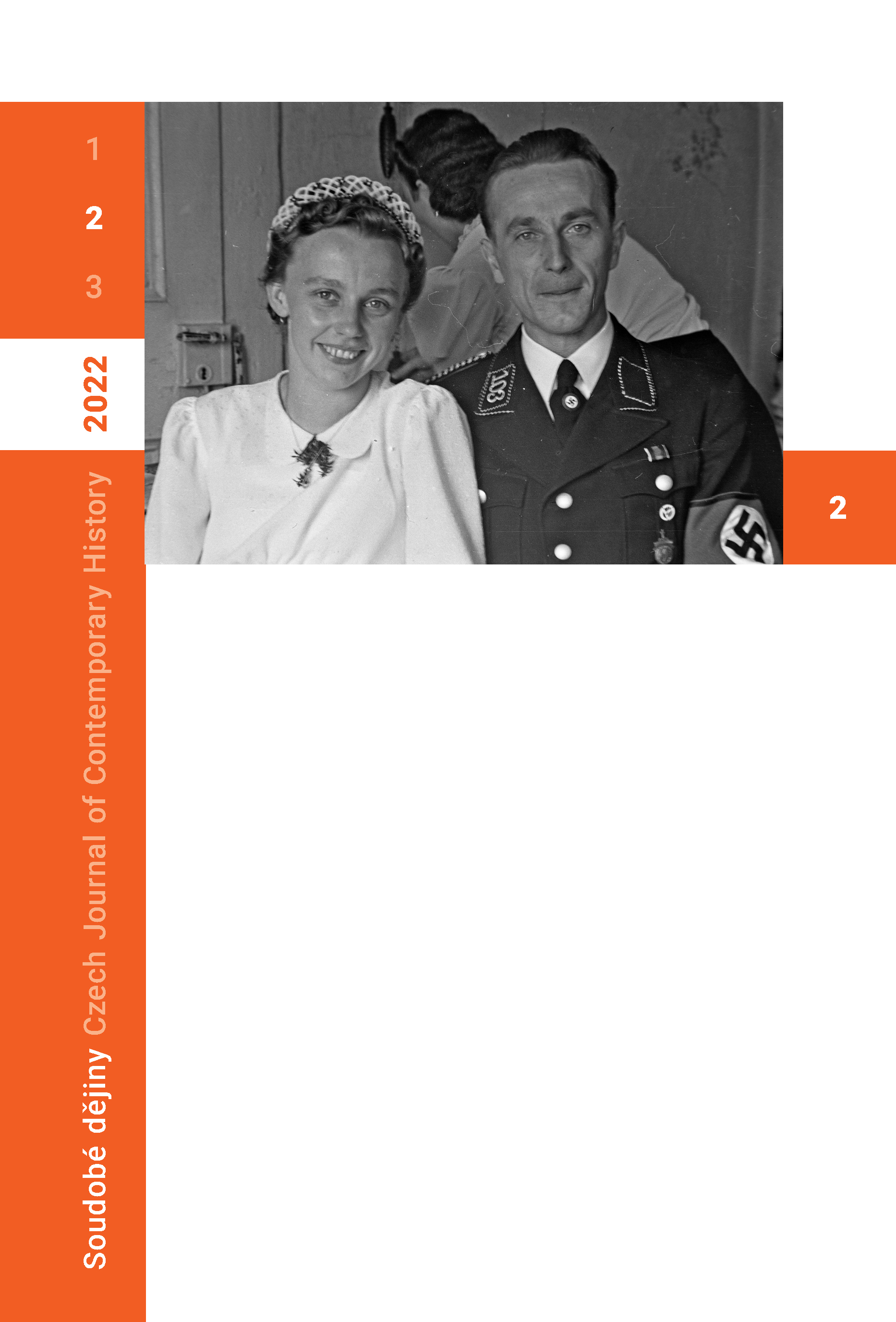Pomalé překračování tradičních mezí
Slowly Crossing the Traditional Boundaries
Fascism in the First Czechoslovak Republic as a Methodolgy Problem of Czech, Slovak and Czechoslovak Historiography from the Point of View of Historians of the "New Consensus"
Author(s): Jakub DrábikSubject(s): History, History of ideas, Political history, Interwar Period (1920 - 1939), Fascism, Nazism and WW II
Published by: AV ČR - Akademie věd České republiky - Ústav pro soudobé dějiny
Keywords: Czechoslovakia;First Czechoslovak Republic;fascism;Czech fascism;Slovak fascism;Czech historiography;Slovak historiography;Czechoslovak historiography;historical methodology;"new consensus"
Summary/Abstract: This review article focuses on the Czech, Slovak and Czechoslovak historiography of fascism and fascist movements in interwar Czechoslovakia. Its aim is to map, characterize and critically analyze the most important works on Czech and Slovak fascism in the First Republic from contemporary publications to the present. Thus, the chronological scope of the study includes journalistic texts from the interwar period, an extensive output from the communist era, mostly more or less ideologically burdened, as well as the numerous and diverse works of Czech and Slovak historians written since the early 1990s. The author approaches the topic from the point of view of the so-called new consensus, represented mainly by the British historian Roger Griffin, to which the author himself subscribes and which he considers to be the most influential theoretical concept in the study of fascism in contemporary historiography. He sees its main features in the emphasis on ideology in an ideal-typical conception, in the belief in the existence of a general fascism and in methodological empathy, based primarily on the discourse of the fascists themselves. At the same time, the author also shares his critique of the “new consensus”. He suggests that after the fall of the Iron Curtain, Czech and Slovak historiography did not make sufficient use of the inspiration offered by international research for the study of fascism. Although Czech and Slovak historiography quickly shed its ideological allegiance and dealt with the phenomenon of fascism in interwar Czechoslovakia extensively, producing a number of works on the topic, most of these publications have been overwhelmingly narrative and empirical, descriptive rather than analytical. Furthermore, Czech and Slovak historians have not sufficiently reflected on the international debate and current trends in their research on fascism, and have neglected comparative studies, sticking to the usual partial topics. Despite considerable progress, Czech and Slovak historiography, in the light of the “new consensus”, has so far failed to answer a number of key questions about the nature and character of fascism in interwar Czechoslovakia. The author singles out only a few scholars who, in his view, go beyond traditional approaches and are or were at the forefront of international research on fascism: these are, for the period of the 1960s, primarily the Czech-German historian Bedřich Loewenstein (1929–2017) and, more recently, the Slovak historians Anton Hruboň and Miloslav Szabó and the Czech authors Pavel Kotlán and Miroslav Mareš.
Journal: Soudobé Dějiny
- Issue Year: XXIX/2022
- Issue No: 2
- Page Range: 381-414
- Page Count: 34
- Language: Czech

